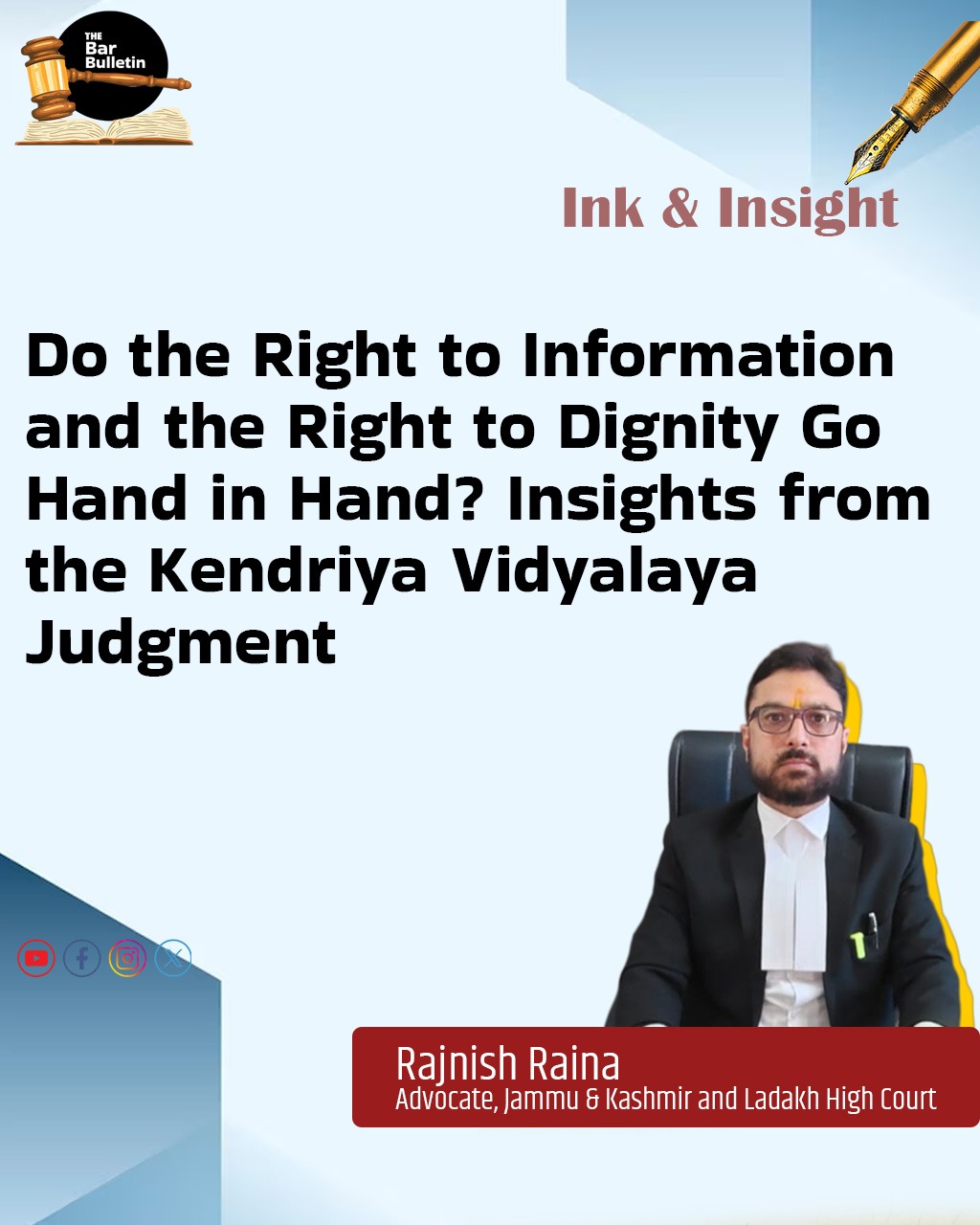The Right to Information (RTI) Act, 2005, empowered ordinary citizens to call for accountability from public institutions. This, in turn, raises an important question: Where do we draw the line between information that the public has a right to know and the details that an individual has a right to keep private?
This debate came back recently in a decision by the Jammu & Kashmir and Ladakh High Court in the matter of Kendriya Vidyalaya Sangathan (KVS) v. Central Information Commission[1] . Here, demands for personal info under the RTI Act were strongly turned down, showing the limits set in Section 8(1)(j) of the Act.
When Right Becomes Invasions
Section 8(1)(j) exempts personal information from disclosure, other than when it would serve a larger public interest. This is a provision which has been somewhat overtaken by the greater objectives of transparency, and yet one which has come to be very relevant in recent legal interpretations.
In Dr. Ashok Kumar vs Kendriya Vidalaya Sangathan Chennai[2] judgment dated 30-05-2025, access to staff attendance registers and performance records was requested by the petitioner however, the Central Information Commission (CIC) refused, treating such information as personal and not related to any public interest. Similarly, in Pushpa Devi v. KVS[3], whose judgement was appealed in the titled case, the information regarding inquiry reports on a principal’s alleged misconduct was also denied to be disclosed. The decision of the CIC was based upon a decision rendered by the Supreme Court in Girish Ramchandra Deshpande v. Central Information Commissioner[4], which decision had emphatically held that such files on personnel and disciplinary records are protected unless a compelling public justification is shown.
In this other case, Subrat Kumar Ray v. KVS[5], the information requested was regarding the list of occupants of staff quarters. Again the CIC invoked the privacy clause that said such residential information had no relation to public activity and hence could not be disclosed.
Privacy as the Constitutional Right
In K.S. Puttaswamy v. Union of India[6], the right to privacy was evolved as a fundamental right under Article 21, courts and commissions are now sensitized towards the protection of personal data. This sensitivity shift has been illustrated in the Kendriya Vidyalaya cases.
For many, the desire to use RTI as a tool for probing into internal affairs, often out of curiosity or personal grievances, is strong. But the law insists on balancing. Information officers are now required more frequently to assess not only the content of a request but also the intent and implications of disclosure.
A Call for Responsible Transparency
The rulings of the Kendriya Vidyalaya are important in guiding not only lawyers and bureaucrats but also students, parents, and every citizen who uses the RTI system. It reminds us that freedom of information is not absolute; it is calibrated by law to ensure it does not erode an equally important value, that of personal privacy.
As India moves forward toward a more robust data protection regime, these rulings will likely act as beacons. They remind us that transparency and privacy need not always be antithetical; they are twin pillars of an equitable and democratic society.
*Rajnish Raina, Advocate, High Court of Jammu & Kashmir and Ladakh
[1] OWP no. 849 of 2017 decided on 03-11-2022
[2] 2nd Appeal no. CIC/KVSAN/A/2023/608075
[3] 2nd Appeal no. CIC/CC/A/000289-SA of 2014 decided on 14.2.2017
[4] (2013) 1 SCC 212
[5] CIC/KVSAN/A/2023/124585
[6] AIR 2017 Supreme Court 4161

